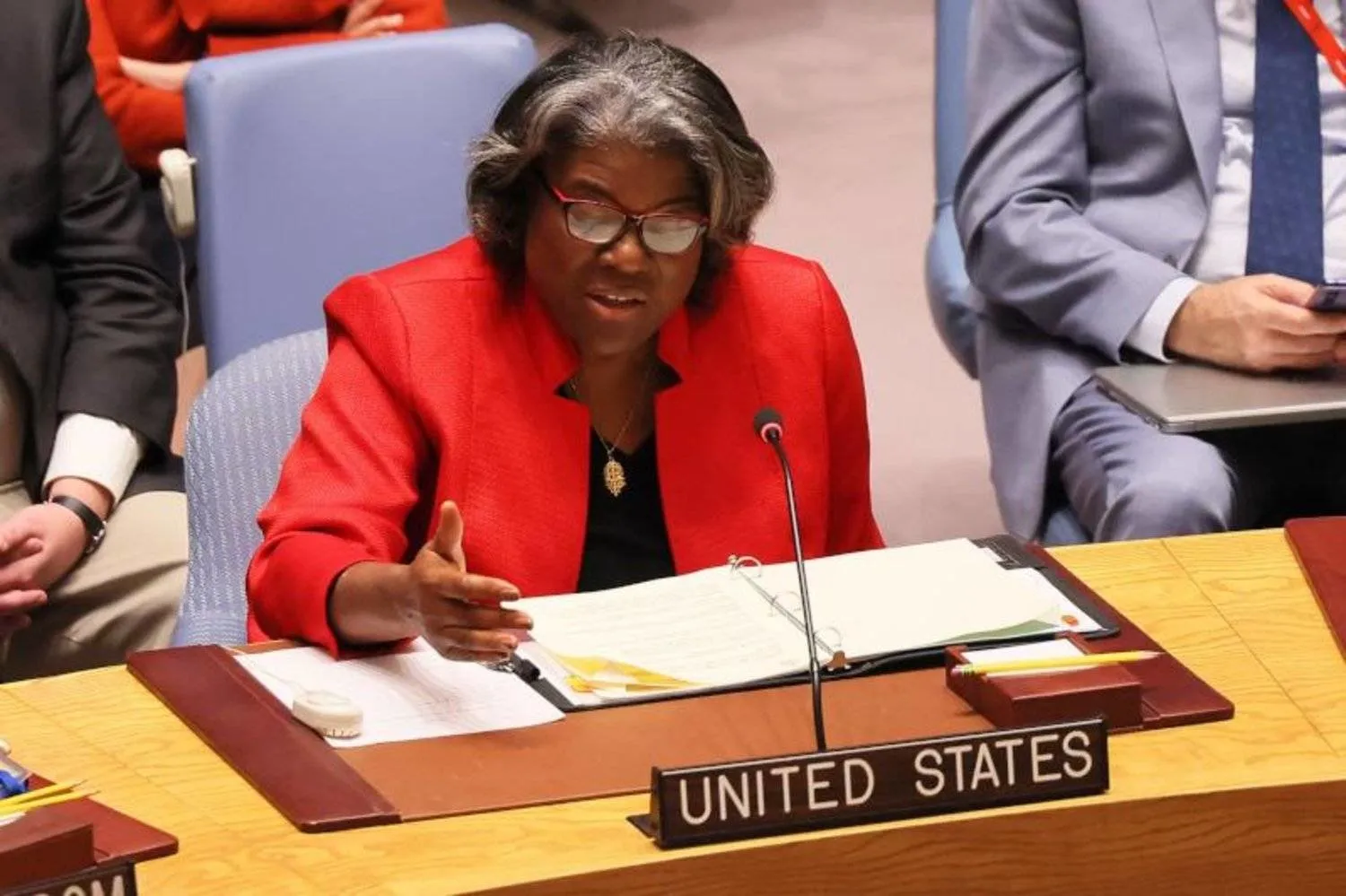The US on Tuesday urged all the Yemeni parties to cooperate with the UN Special Envoy and to meaningfully participate in future Yemeni-Yemeni talks, stressing that Yemenis are rightfully anxious to see progress on peace efforts.
US Representative to the United Nations, Ambassador Linda Thomas-Greenfield said the Houthis continue to block oil exports, further exacerbating Yemen’s humanitarian and economic crisis.
At a UN Security Council briefing on Yemen, the US ambassador said some Yemenis are suffering from continued – and even increased – restrictions on the flow of goods, including Houthi impediments to the sale of cooking gas, and to the movement of other goods from southern Yemen to the North.
“The Houthis also continue to block oil exports, further exacerbating Yemen’s humanitarian and economic crisis,” Thomas-Greenfield added.
On Monday, the UN Security Council unanimously adopted a resolution to extend the mandate of the UN Mission to Support the Hodeidah Agreement (UNMHA) for another year, till July 14, 2024.
“Renewing this mandate means the UN mission will continue to support the ceasefire on the western coast of Yemen,” it wrote.
Thomas-Greenfield said the United States welcomes the renewal of UNMHA’s mandate for an additional year.
Concerning the peace operation in Yemen, she noted that Yemenis are rightfully anxious to see progress on peace efforts.
“Progress will require the Yemeni parties to come together to negotiate complex issues, like the use of Yemen’s sovereign resources to pay public salaries,” she said, urging the parties to cooperate with the UN Special Envoy and to meaningfully participate in future Yemeni-Yemeni talks.
Later, the US ambassador thanked the UN for its updates and its perseverance in addressing the Safer oil tanker, together with the UN Development Program, despite noting that much more needs to be done.
“The Safer operation represents a model for international cooperation on Yemen,” Thomas-Greenfield said.
She then called for maintaining momentum and securing the additional $25 million needed to complete both phases of the Safer operation. The US representative also encouraged private sector donors to support the UN’s plan to avoid a catastrophe.
At the same time, Thomas-Greenfield said, “We must balance efforts like the Safer operation with the need to continue providing life-saving humanitarian assistance.”
She said the UN’s humanitarian response in Yemen remains dangerously underfunded, and that cuts to assistance would have dire consequences for Yemenis at a time when famine conditions are poised to re-emerge.
Meanwhile, Hans Grundberg, Special Envoy of the Secretary-General for Yemen, informed the 15-nation organ that, despite the expiry of the truce, Yemen and its people continue to feel the benefits from the longest period of relative calm since the beginning of the conflict.
He added that the truce contributed to a 40 per cent decrease in grave violations against children.
However, more progress is needed, he pointed out.









